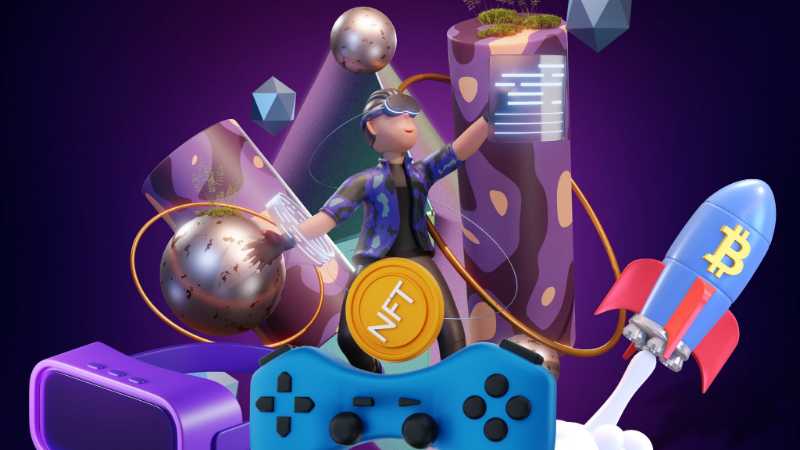Published on: 31/01/2023
Blockchain gaming sector to prosper in 2023 with strong NFT support

Market research firm MarketsandMarkets said the blockchain gaming sector would thrive in 2023, with strong backing from NFTs.
The research company predicted that the blockchain gaming market worldwide would hit a $65.7 billion valuation in four years at a 70.3 percent compound annual growth rate (CAGR).
Despite that, experts caution that insufficient knowledge of blockchain technology and NFTs may hamper the growth.
Per reports, several blockchain gaming projects are currently underway. E-commerce giant Amazon, for example, aims to enter the Web3 gaming market and NFTs. Sources said it would establish a platform where users can play crypto games and acquire NFTs.
In 2022, Amazon CEO Andy Jassy expressed his optimism about the future of blockchain and cryptocurrencies. The company has also recruited numerous Web3 experts to fill strategic positions since 2021.
Recent market findings highlight the importance of regulations in decentralized gaming. Experts especially emphasize the need for anti-money laundering (AML) and consumer protection policies.
The World Economic Forum (WEF) discussed the Responsible Financial Innovation Act recently introduced in the U.S. According to this bill, profit-based GameFi tokens will be categorized as a security.
Several other countries have also launched taxes for digital asset transactions. In these countries, GameFi users must pay taxes for every in-app purchase.
House of Gaming founder and CEO Yash Pariani disagreed with these regulatory approaches, saying that every blockchain gaming project has specific characteristics that may or may not be suitable for these laws.
“Rather than targeting decentralised gaming, I think it would be better if the focus is on the blockchain networks and their tokenomics,” Pariani said.
Analysts listed Enjin, Decentraland and Axie Infinity as a few of many decentralized gaming platforms that would see significant growth in 2023.
Sector players also predicted that decentralized autonomous organization (DAO) economies would become more mainstream in blockchain gaming. Analysts also expect these blockchain gaming projects to exponentially enhance user experience, which many players commonly encounter.
This year, the mobile Web3 gaming sector is expected to see a 9.6 percent revenue growth thanks to in-game purchases. The gamers are also more interested in holding their own in-game digital assets instead of having third parties keep them.
“In 2023, we can expect blockchain games to evolve to become as immersive as the usual computer games we play,” GuardianLink co-founder and CEO Kameshwaran Elangovan said.
“Beyond 2023, when the gaming world and the utilisation of the advantages of the blockchain are expected to saturate, gaming companies will want to enhance the experience by bringing in more features enabled by blockchain.”
Web3 to shape global finance
Analysts said the traditional financial system would reap the benefits of Web3 upon broader adoption, insinuating Web3’s opportunity to shape global finance.
Market intelligence company Grand View Research predicted that the blockchain market would grow at a 44.9 percent CAGR from 2022 to 2030. The research firm also said higher demand for crypto and the implementation of 5G/6G services would further boost its growth.
Web3 can help people to conduct transactions quickly and safely. It also reduces the costs of data storage and data extraction for various financial institutions.
Experts also pointed out that Web3 offers a smart contract system, which improves the transparency in peer-to-peer transactions. Each individual or business entity can conduct transactions safely with minimum involvement of financial authorities.
Furthermore, Web3 can help global banks establish cross-border connections. People will no longer need to wait hours or even days to complete international transactions.
Several companies like OpenSea and Ripple are already developing Web3 financial services to cater to the great demand for decentralized finance. Although analysts believed it would take a longer time for the executions, both industries had started recognizing the benefits of joining forces.



